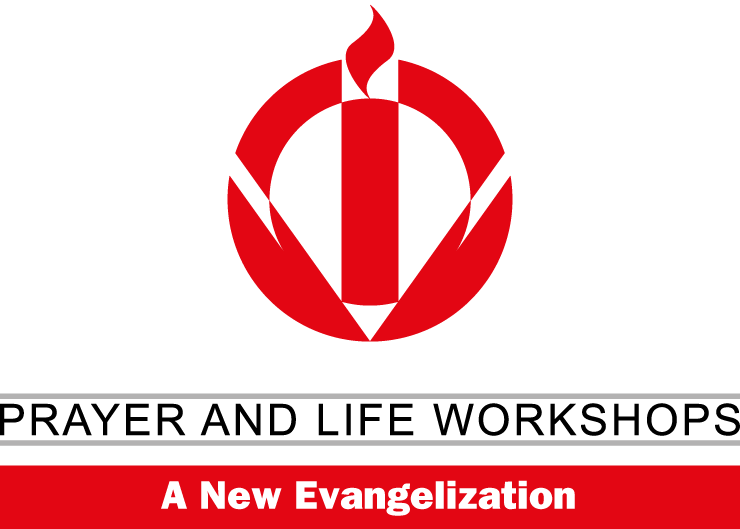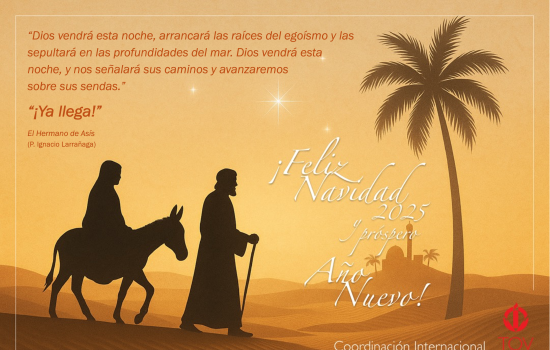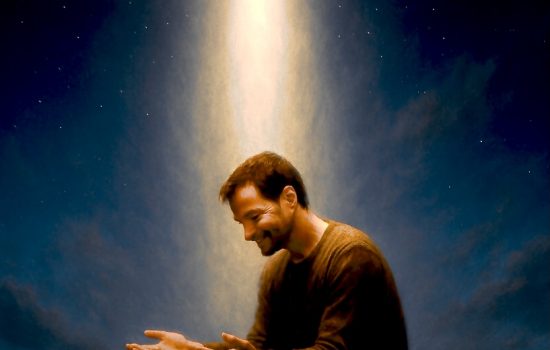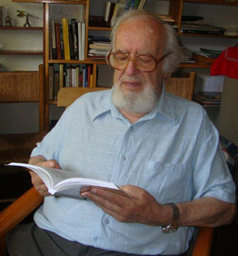Let us begin by displaying two panoramic canvases to the reader that, like brilliant flames, give splendor to all the activities of Jesus, his words and his ideas during this first period: “Jesus went all around Galilee, teaching in their synagogues, proclaiming the good news of the Kingdom, and curing all kinds of sickness and disease among the people. The news about him spread throughout all of Syria, and the people brought all their sick to him, and all those who suffered: the possessed, the deranged, the paralyzed, and he healed them all. Large crowds followed him from Galilee and the Ten Cities, from Jerusalem, Judea, and from across the Jordan.” (Mt 4:23-25)
“Come to me, all of you who are fatigued and who carry heavy
burdens and I will refresh you. Take my yoke upon you and learn
from me because I am gentle and humble of heart; and you will
find rest. For my yoke is easy and my burden is light.” (Mt 11:28-30)
Is there any magic word that would sum up these two magnificent frescos? Love? In any case, hidden and palpating, here lies the living mystery of the Poor One from Nazareth: the way leading from poverty to love. And with this, have we not touched the deepest profundities of Jesus?
Everything begins with a “poor and humble heart.” Jesus had a secret song that played in his heart like a background melody and which resounded incessantly like a cantus firmus. He had a clear idea of his vocation, as though he had fixed in his mind his own image that corresponded to the figure and destiny of a person, not necessarily historical, but an image which he had contemplated and assumed from the days of his youth: the figure and destiny of the Ebed-Yahweh, the humble servant of Yahweh.
Now, the Poor One of God is a free man. He who has nothing and wants to have nothing may fear nothing because fear is a bundle of energies discharged for the defense of properties and appropriations when the proprietor feels that they are threatened. But to the poor like Jesus, who did nothing but sweep away even traces of his shadow, and who dedicated himself to the extermination of heroic desires, dreams of grandeur, subtle appropriations… what can upset this Poor Man? That is why we see Jesus as an incorruptible prophet, a witness who cannot be bribed, absolutely free before political powers and religious authorities, before friends, followers, and relatives, before the results of his own ministry even before the law and official religion.
Indeed, from a free man is born an open man because thanks to certain mysterious mechanisms, there are certain constants. For example: from negation is born affirmation; from detachment, donation; from poverty, love; and from death, life. In short, the inherent energy chained to the collar of egoism, once unhooked and freed, becomes available for the service of others.
Thus is born a Servant: if the prophet does not begin to detach himself, to divest himself of material objects, that is, to become poor, he cannot serve anyone. On the other hand, subtle and camouflaged, he will use everything and everyone. For example, a prophet may love the people excessively, but eventually and without noticing it, he may be transforming the public into a platform from which to project himself and feel fulfilled. He seemed to be serving the people, but he was actually using them to achieve his own goals.
Conclusion? Only a pure man, only a Poor Man can serve the poor. What then is the final and living mystery of the Poor One of Nazareth? The way that leads from poverty to love. In other words, who is Jesus of Nazareth? Some poor, free, available servant who has travelled the pathway from poverty to love.
Extracted from the book “The Poor One of Nazareth”, by fr. Ignacio Larrañaga










